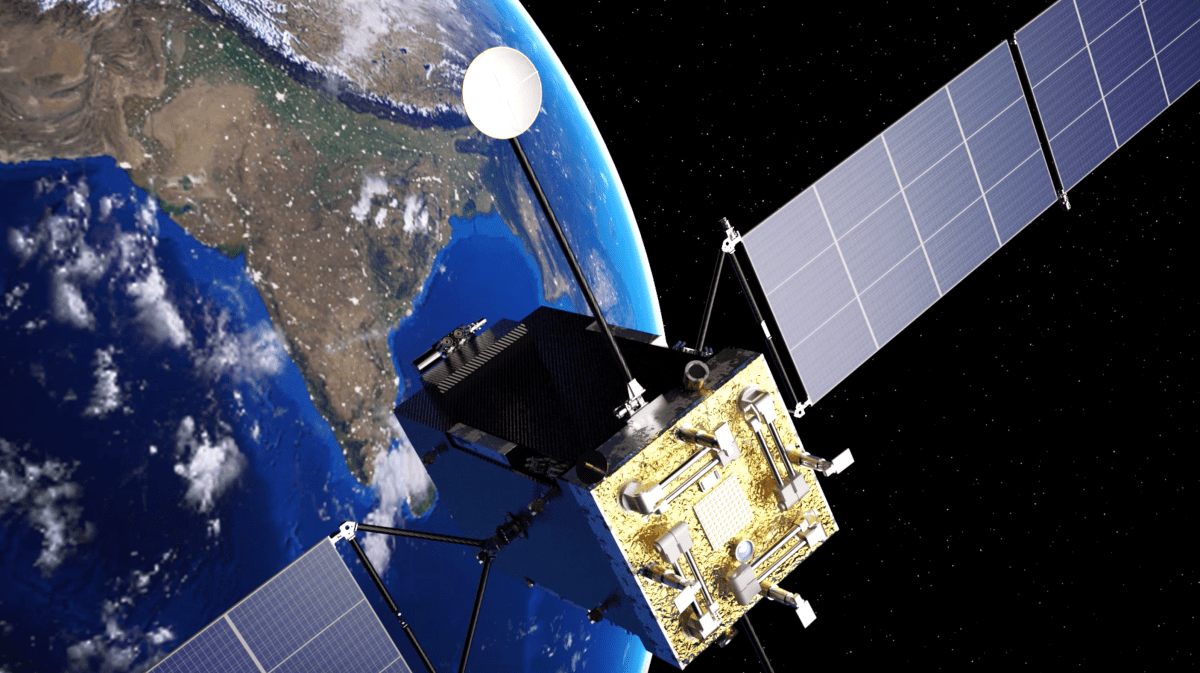Kurs Orbital, a startup founded by Ukrainian space industry veterans, has just recently received a new injection of funding to propel their groundbreaking satellite servicing technology into commercialization.
The two-year-old company seeks to usher in a new era for human activities in space by offering services such as satellite relocation and inspection, de-orbiting, and space debris removal. Rather than providing these services themselves, Kurs aims to become the leading supplier of rendezvous and docking technology through their “ARCap” module, compatible with any spacecraft bus.
“At the moment, there are no pre-existing rendezvous and docking technologies available, meaning that any company looking to enter the satellite servicing or logistics market must develop this technology from scratch,” explains Volodymyr Usov, CEO of Kurs. “This is a lengthy and costly endeavor, requiring numerous missions, extensive manpower, and significant financial resources. In contrast, our module offers a much quicker and more cost-effective solution.”
The company’s technology is built upon the proven reliability of the Kurs rendezvous system, a technology developed in the Soviet-era to facilitate spacecraft docking with the Mir space station. Unlike other companies developing in-space servicing technology, Kurs Orbital’s module has the unique ability to attach to “non-cooperative” targets, i.e. spacecraft lacking any pre-installed hardware.
“Our module does not require any pre-existing hardware on the customer spacecraft, as it is capable of handling any type of non-cooperative target, including depleted fuel satellites, faulty satellites, and space debris,” says Usov, who previously led Ukraine’s space agency. “Our aim is to provide a robust and flexible system that enables fully autonomous operations in space and from ground control.”
This Turin, Italy-based company has set its sights on having the first ARCap module ready for launch in the fourth quarter of 2025. While Usov has declined to divulge further details about the first mission, the recent closure of a €3.7 million ($4 million) seed round led by European deep tech VC firm OTB Ventures, with participation from Credo Ventures, Galaxia, In-Q-Tel, and Inovo, will undoubtedly accelerate these plans. In addition, Kurs plans to expand its team of 11 with the new capital.
The potential of on-orbit servicing has garnered increasing attention after the failure of several high-cost, high-profile satellite missions. For example, the ViaSat-3 geostationary satellite recently experienced issues during antenna deployment, leading to a significant loss in planned capacity. As a result, the company filed a $421 million insurance claim for the spacecraft.
The market for de-orbiting services could also prove highly lucrative. Before a satellite can be decommissioned, geostationary satellite operators must first transfer their spacecraft to a “graveyard orbit,” a process that takes many months and consumes a considerable amount of fuel. By enabling de-orbiting services, operators can maximize the useful life of their satellites.
However, the future of this industry remains uncertain, and Usov notes that the company is “confident that things will get very interesting.”
“In the early 90s, no one could have foreseen the use of the internet for products like social media and streaming services,” he adds. “Likewise, we are aware that our module has the potential to enable various applications, including life extensions, decommissionings, inspections, active debris removals, and refuelings. But we also anticipate that new use cases for our technology will emerge over the next 10 years. In terms of logistics, we are currently limited to a single destination, the ISS. However, in 10 years, we expect to have multiple commercial destinations operated by private companies in various orbits. We firmly believe that the next major step in space will be multimodality, just like on Earth, and what better solution than a standardized technology capable of handling all scenarios?”








